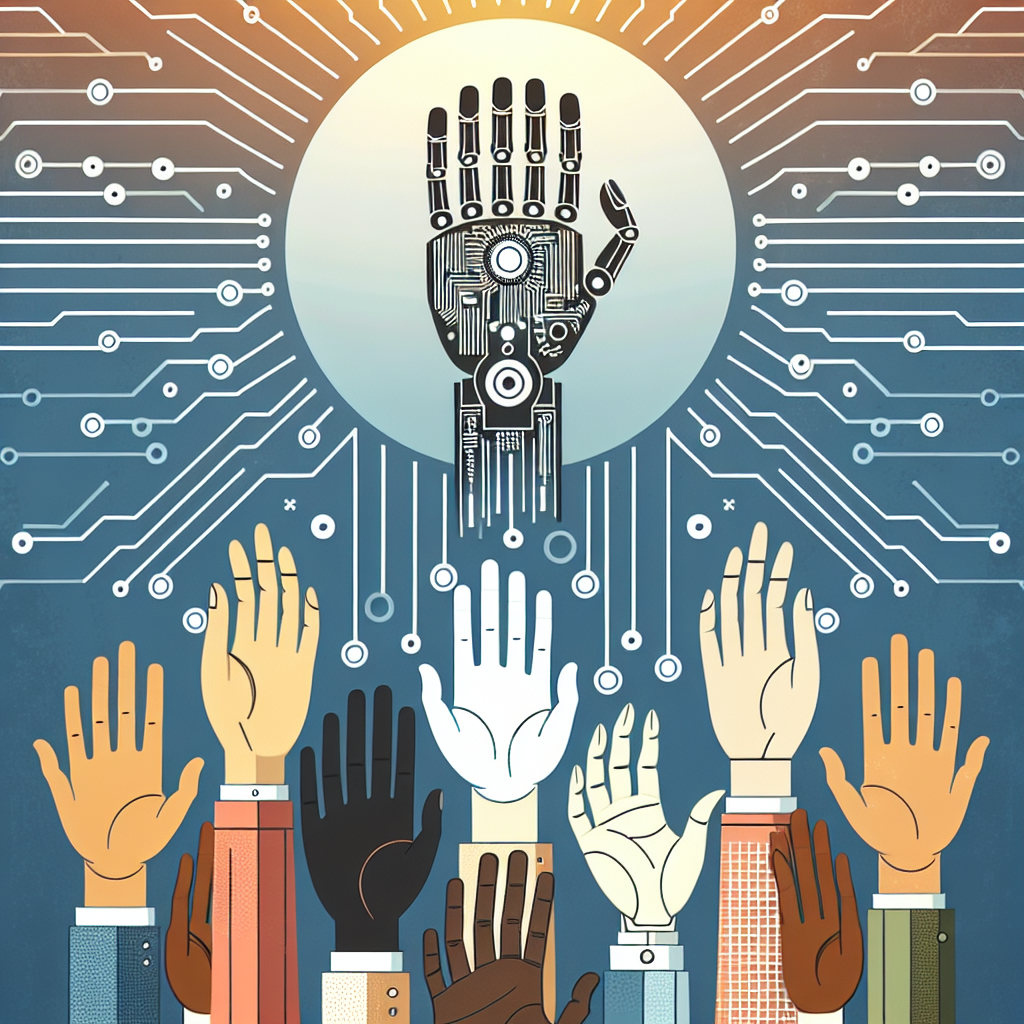AI for the People: The Rise of Democratized Tech
Artificial intelligence (AI) has been a buzzword in the tech industry for years now, with promises of revolutionizing various sectors and industries. However, until recently, AI has mostly been the domain of tech giants and big corporations with the resources to develop and deploy advanced AI systems. But that is changing rapidly, as democratized AI technologies are becoming more accessible to individuals and smaller businesses.
The democratization of AI is a trend that is gaining momentum, driven by advancements in technology, increased availability of data, and a growing community of developers and researchers working on open-source AI projects. This shift is opening up new possibilities for individuals and businesses to leverage AI in ways that were previously only available to a select few.
One of the key drivers of the democratization of AI is the rise of cloud computing and AI as a service. Cloud providers such as Amazon Web Services, Microsoft Azure, and Google Cloud Platform offer a range of AI services that can be easily integrated into applications and workflows. These services include image and speech recognition, natural language processing, and predictive analytics, among others.
Another important factor in the democratization of AI is the availability of open-source AI frameworks and tools. Projects such as TensorFlow, PyTorch, and scikit-learn have made it easier for developers to build and deploy AI models without the need for specialized knowledge or resources. This has democratized access to AI technologies, making them more accessible to a wider audience.
The democratization of AI is also being driven by a growing community of AI enthusiasts, researchers, and developers who are collaborating on open-source projects and sharing their knowledge and expertise. Platforms such as GitHub and Kaggle have become hubs for AI enthusiasts to collaborate on projects, share code, and participate in competitions.
The rise of democratized AI technologies is opening up new opportunities for individuals and businesses to leverage AI in innovative ways. For example, small businesses can use AI-powered chatbots to automate customer service, while individuals can use AI-powered tools to analyze data and make better decisions.
However, the democratization of AI also raises important ethical and societal issues. As AI technologies become more widespread, concerns about privacy, bias, and accountability are becoming more pressing. It is crucial for developers, researchers, and policymakers to address these issues and ensure that AI is used in a responsible and ethical manner.
In conclusion, the rise of democratized AI technologies is opening up new possibilities for individuals and businesses to leverage AI in ways that were previously only available to a select few. This trend is driven by advancements in technology, the availability of data, and a growing community of developers and researchers working on open-source AI projects. While the democratization of AI presents exciting opportunities, it also raises important ethical and societal issues that must be addressed.
FAQs
Q: What are some examples of democratized AI technologies?
A: Some examples of democratized AI technologies include AI-powered chatbots, image recognition tools, natural language processing applications, and predictive analytics platforms. These technologies are becoming more accessible to individuals and businesses through cloud services and open-source frameworks.
Q: How can individuals and businesses leverage AI technologies?
A: Individuals and businesses can leverage AI technologies in a variety of ways, such as automating tasks, analyzing data, improving decision-making, and enhancing customer service. AI technologies can be integrated into applications, workflows, and processes to increase efficiency and productivity.
Q: What are some ethical issues related to the democratization of AI?
A: Some ethical issues related to the democratization of AI include concerns about privacy, bias, accountability, and the impact of AI on society. As AI technologies become more widespread, it is important for developers, researchers, and policymakers to address these issues and ensure that AI is used in a responsible and ethical manner.

